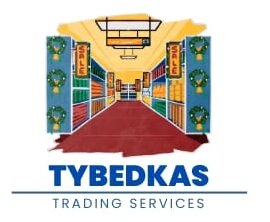The Rise of Student-Driven Encyclopedias: Transforming Understanding Landscapes
In the ever-evolving world of education, where details flows abundantly and access to understanding is just a click away, student-driven encyclopedias are emerging as a dynamic tool in the learning process.

These platforms not only supply students with a repository of information however also motivate them to contribute, edit, and curate material, promoting a collective and interactive understanding setting.
As instructional standards shift towards even more participatory and comprehensive models, the idea of student-driven encyclopedias personifies this change. These platforms encourage students to come to be active individuals in understanding development, linking the space in between traditional book knowing and contemporary electronic sources.
The Concept of Student-Driven Encyclopedias
Student-driven encyclopedias are digital systems where students collectively collect, confirm, and distribute details on a vast array of subjects. Unlike standard encyclopedias, which are frequently written by experts, these platforms utilize the joint efforts of trainees to produce a comprehensive body of knowledge.

At their core, student-driven encyclopedias are created to cultivate essential reasoning, study abilities, and electronic proficiency among pupils. By participating in the process of content creation, pupils find out to navigate and assess information critically, abilities that are important in today’s information-rich society.
Moreover, these systems work as a room for pupils to discover their interests and share their experience. This autonomous method to knowledge development guarantees that a diverse series of viewpoints and voices are stood for, enhancing the learning experience for all participants.
- Trainees get hands-on experience in study and web content development.
- Urges partnership and peer interaction.
- Promotes a much deeper understanding of subject.
- Fosters inclusivity and diversity in knowledge representation.
Essentially, student-driven encyclopedias change students from passive receivers of info right into energetic factors, instilling a feeling of ownership and obligation in their academic journey.
Advantages of Student-Driven Encyclopedias
One of the primary advantages of student-driven encyclopedias is the advancement of crucial 21st-century abilities. As pupils take part in the procedure of content creation, they hone their critical reasoning, electronic proficiency, and communication skills, all of which are essential in today’s interconnected globe.
In addition, these systems motivate a joint knowing atmosphere, where students can work together to validate information, debate different perspectives, and co-edit write-ups. This peer-to-peer communication not just improves discovering results but also fosters a sense of area and mutual regard among trainees.
Moreover, student-driven encyclopedias supply a platform for showcasing trainee work. As pupils add to the encyclopedia, they construct a portfolio of their study and writing, which can be important for additional scholastic and specialist pursuits.
Obstacles and Limitations

Despite the many benefits, student-driven encyclopedias likewise encounter specific obstacles. Guaranteeing the precision and dependability of info is critical, as these systems depend on payments from students that might not yet have expert-level knowledge.
- Preserving material top quality and accuracy.
- Supplying appropriate guidance and guidance.
- Ensuring fair gain access to and inclusivity.
To minimize these difficulties, many student-driven encyclopedias implement a system of checks and balances, where material is reviewed by educators or professionals before publication. This ensures that the information offered is both precise and credible, supporting the honesty of the platform.
The Future of Student-Driven Encyclopedias
As technology remains questions and answers to advancement and the landscape of education and learning develops, the potential for student-driven encyclopedias is substantial. These systems have the ability to not only enhance typical educational resources but additionally redefine the means understanding is obtained and shared.
In the future, we may see student-driven encyclopedias incorporating advanced modern technologies such as artificial intelligence and artificial intelligence to enhance material curation and personalization. Additionally, they may increase beyond textual info to consist of multimedia material, using a much more immersive discovering experience.
Equipping the Future Generation
Student-driven encyclopedias hold the promise of equipping the next generation of students. By positioning trainees at the helm of expertise production, these platforms encourage long-lasting understanding, curiosity, and intellectual independence.
To conclude, as academic systems continue to innovate, student-driven encyclopedias stand as a testament to the power of collaboration and the significance of trainee company in the discovering process. By embracing these platforms, we open the doors to an extra comprehensive, engaging, and dynamic educational experience for all.
